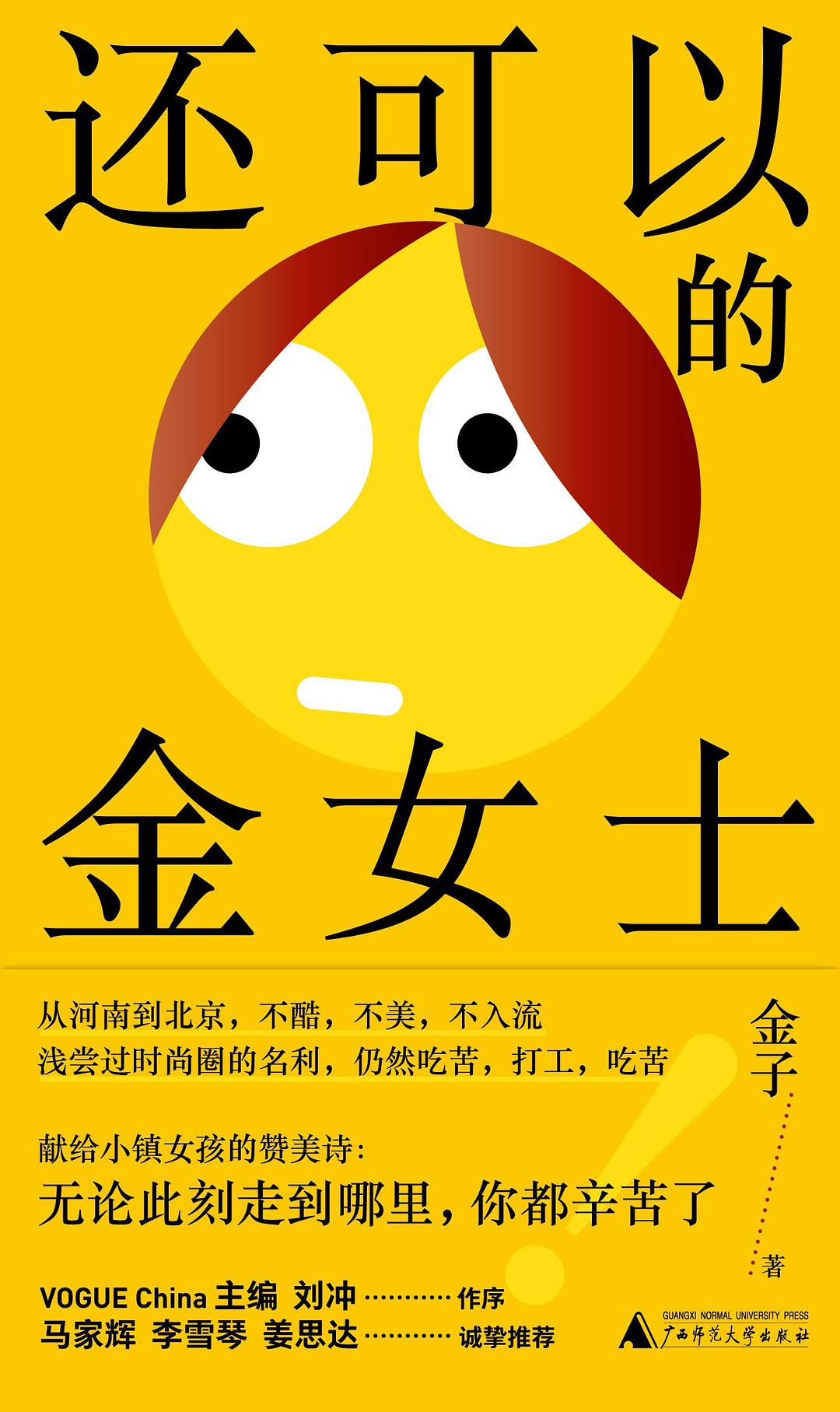
| Original title: | 还可以的金女士 |
| Translated title: | Ordinary Ms. Jin |
| Author(s): | Jinzi 金子 |
| Publisher: | Guangxi Normal University Press |
| Date published: | April 2025 |
| # Pages: | 240 |
| ISBN: | 9787559880154 |
As I begin writing this article, the recently published Ordinary Ms. Jin (original title: 还可以的金女士) ranks 12th on Douban’s list of trending books for July. So far, this brief memoir has gathered around 1,400 ratings with an average score of 8.2 out of 10. Roughly 1,500 readers have marked it as read, while more than 5,000 have added it to their want to read shelf.
Not bad at all for a literary debut—especially from a writer who has labelled herself (quite literally, in the book’s title) as “还可以,” or just fine. So we may ask: what is driving the popularity of this slim volume, barely 250 pages long?
Part of the answer may lie in the author’s background. Jinzi (金子), the pen name of Yang Lin (杨林), was raised in the town of Puyang, in the province of Henan. She is the classic example of a 小镇做题家—literally, a small-town examination master, and in that, she is the representative of an entire cohort of Chinese millennials. Schooled to believe that exams are the only reliable escalator to a better life, Jin has always put all of her efforts into studying and maximising her performance at exams. Fighting against some of the fiercest competition in the whole country1, she eventually got a high score on the gaokao, and secured admission to a top-tier university. From that moment on, society implicitly assumed, life was supposed to become easier for her.
And in some respects, it did. After graduation, Ms. Jin landed a job in Beijing’s fashion media industry. For someone of her background and class, this was tantamount to having “made it.” But Jin soon realised that her new life in the big city demanded a set of skills that the gaokao never tested. In her profession, of course, knowledge still mattered: but so did accents, networks, taste, brands, and an unteachable fluency with social scripts. The fashion world is pretentious, brimming with vanity, and merciless toward awkwardness or insecurity. Before long, Jin understood that if she wanted to survive in this new world she had stepped into, she would have to change into a newer version of herself.
我是一个骑在墙上的人,我流窜于小镇和名利场之间。当我在名利场时,我是一个冷眼穷人,这些故作体面的人造景观让我疲惫。当我在小镇时,我又不禁为我在名利场学到的东西沾沾自喜,想要把先进的时尚知识播撒在朴素的河南大地。
I’m a person riding the fence, between the world of the “small town” and the world of “vanity fair”. When I’m in vanity fair, I’m a cold-eyed pauper, tired of all this pretentious artificiality. When I’m in small-town, I can’t help but feel smug about what I have learnt in vanity fair; eager to spread my advanced knowledge of fashion into the simple land of Henan.
One anecdote after another, Ordinary Ms. Jin reports the micro-life-struggles of a person who was smart enough to break into the middle class, but too provincial to feel comfortable within it. Ms. Jin’s story is the story of millions of young Chinese, who left school with the sense of entitlement granted by the fact that they could write perfect essays, only to crush with disillusionment when discovering that high exam scores meant nothing within the high circles of fancy, urban elites. It is a story of misplacement, told with a light-hearted sense of irony and disillusionment. And for many Chinese readers, it is a story that brings familiarity and comfort.
That feeling, it could be me, is truly the book’s engine. Many readers have termed the book 真诚, genuine. They appreciate its confessional tone, that never falls into self-pitying, or into empty social critique. Other commenters on Douban, though, have judged the book’s content as too shallow, its style as too plain and uninventive. To quote one of the comments, 口水很多, the book is full of saliva, i.e. of words with very little substance. One
For decades, the story China told itself was simple: study hard, enter a good school, move to a big city, and everything will be fine. Rising property prices and a surplus of university graduates have complicated that story. Ordinary Ms. Jin is a candid, brutally honest mirror for millions of Chinese millennials. And they are not afraid to look straight into it.
This is the second in a series of posts where I bring trending Chinese media to the attention of an English-speaking audience. In my previous post, I covered the story of a gruesome murder, and how its coverage sparked a hot online debate on themes of meritocracy and victim-blaming.
I am a data analyst by training and I bring my knowledge of data science into the study of contemporary Chinese media. I believe the world still understands far too little about China, and my goal is to help bridge a small part of that gap. If this article resonated with you, I’d be delighted if you followed my work—either here on my blog, or on the other platforms where I publish (Medium, Substack). Thank you for reading, and until next time!
-
Due to its large population, Henan is one of those provinces where taking the gaokao (高考), the Chinese university entrance exam, is even harder than usual. The number of exam-takers is higher, and universities acceptance rates are lower. ↩︎
